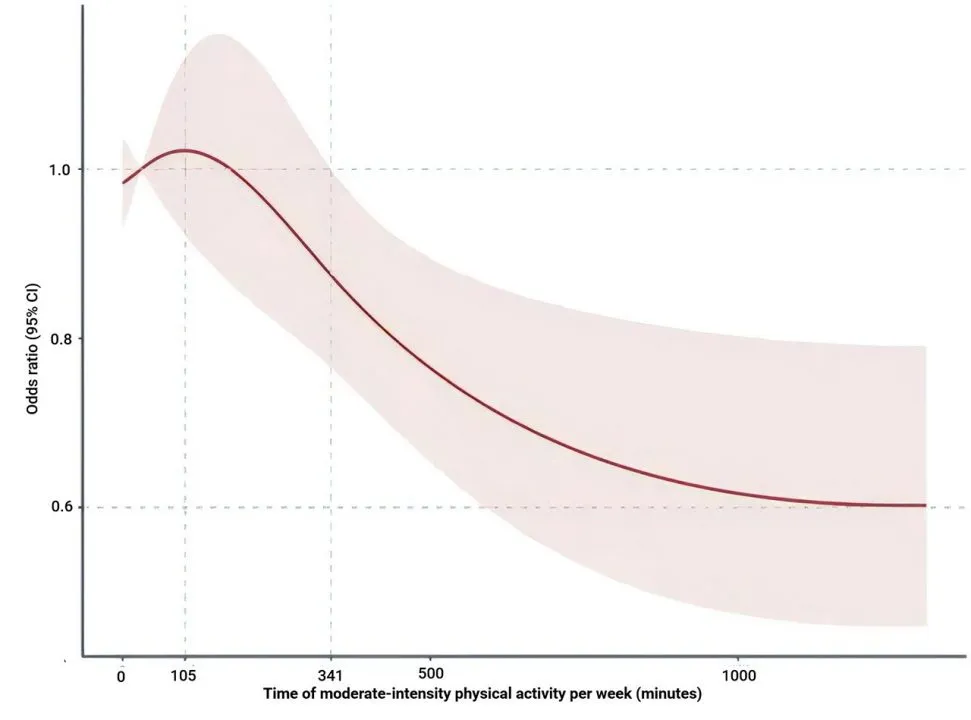Today's Thursday • 8 mins read
— By Dr. Sandip Roy.
Sleep issues and Attention Deficit Hyperactivity Disorder (ADHD) have a two-way connection:
ADHD delays and disturbs sleep, and sleep problems worsen ADHD symptoms.
Grown-ups with ADHD have these sleep problems:
- Longer time to fall asleep: The hyperactive part of ADHD makes them struggle to unwind and relax, with racing thoughts making it hard to transition from wakefulness to sleep. The impulsivity part of ADHD can lead them to do stimulating things near bedtime that keep them up late.
- Waking up later: Their natural circadian rhythm is often shifted late, so they have a delayed sleep phase, which makes them sleep later than conventional bedtime as well as wake up later.
- Disturbed sleep: Even after falling asleep, they often have restless sleep and may keep tossing and turning, or have trouble staying asleep.
Unfortunately, those with ADHD have worse sleep when on ADHD medications (which are mostly stimulants).
Inadequate sleep can reduce the life expectancy of people with ADHD.
A 2025 study in The British Journal of Psychiatry estimated that people diagnosed with ADHD had a shorter life expectancy than matched controls — about 6.78 years less for men and 8.64 years less for women — likely linked to co‑occurring health problems, risky behaviours, and unmet treatment needs rather than ADHD itself.
A team of Chinese and American researchers recently discovered one strategy that can enhance sleep quality in ADHD people: regular exercise.
How To Sleep Better If You Take ADHD Medicine
Researchers reported that physical activity can significantly improve sleep in grown-ups with ADHD, particularly those on stimulant medications.
The findings of the study by Zhu, Liu, & Kuang (2023) are encouraging:
- Physical Activity (PA) Improved Sleep: Moderate-to-vigorous physical activity improved sleep in grown-ups with ADHD on stimulant medications. It noticeably shortened the time it takes to fall asleep, increased total sleep time, and improved overall sleep quality.
- 150 Minutes Weekly Guideline: Those who did 150 minutes of physical activity per week saw a significantly lower chance of complaining of trouble sleeping.
- Gender-Specific Benefits: The positive impact of physical activity on sleep appeared to be more pronounced in men than in women, suggesting physiological and possibly hormonal differences between genders.
- Dose-Response Relationship: A clear dose-response relationship emerged — more physical activity led to fewer sleep troubles.
The following graph shows the relationship between the amount of moderate-intensity physical activity per week and the likelihood of experiencing trouble sleeping in grown-ups with Attention Deficit Hyperactivity Disorder (ADHD) on stimulant medications:

Relief from sleep issues began after 105 minutes of weekly physical activity, with a notable difference observed after 341 minutes, leveling off at 1,250 minutes.

[Did you know about The Mystical Rejection Sensitivity Dysphoria In ADHD/Autism?]
How To Optimize Your Exercise For Best Sleep Results
Since physical activity has been proven to help you fall asleep faster, sleep longer, and have better sleep quality, how should you exercise if you’re a grown-up with ADHD?
Choose an exercise plan guided by these findings:
- Most beneficial activities: Moderate-to-vigorous aerobic exercises were found to be highly effective. The authors asked, “Do you engage in any moderate-intensity sports, fitness, or recreational activities such as brisk walking, bicycling, swimming, or volleyball for at least 10 min continuously during a typical week?”
- Tailor exercise to your ADHD type: Select the type of exercise based on your specific ADHD symptoms present. If you’re the one with more hyperactivity, vigorous activities may benefit you more. If you’re the one with more inattentive symptoms (that is, you get distracted easily), moderate-intensity exercises may suit you more.
- Check how exercise affects your sleep: Monitor how your exercise routine affects your sleep quality. Keeping track helps make necessary adjustments. If a certain type of exercise isn’t helping you sleep better, consider trying a different type, intensity, or duration.
- Regular Exercise Helps: The authors write, “As such, it is crucial to establish a consistent physical activity regimen and allocate adequate time for the body to acclimate to the novel physical demands.” So, maintaining a consistent amount of physical activity is key. They defined a person as active only if they completed 150 min of moderate-to-vigorous intensity physical activity during a typical week.
- Personalize your exercise plan: Pick an exercise plan that suits your preferences and abilities. Adjust the intensity and duration of exercises based on your fitness level and other health concerns.
- Exercise Is a Good Shield: The study suggests that physical activity can act as a protective factor against sleep disturbances in grown-ups with ADHD, particularly those using stimulant medications. They write, “Our results suggest that greater amounts of weekly moderate-to-vigorous activity result in a lower risk of trouble sleeping, indicating that maintaining a certain amount of PA is a protective factor to sleep for ADHD with stimulant medication use.”
Actionable tip: Try to get 150 minutes of moderate-to-vigorous exercise per week if you’re a grown-up with ADHD on medications.
How To Integrate Exercise Into Daily Life
Here’s how you can make exercise a regular part of your ADHD life:
- Set Achievable Goals: Set goals that you can reach, not ones too high or too fast. Start with shorter sessions, like 20 minutes of brisk walking, and gradually work your way up to 150 minutes per week. Start with 3 times a week, then gradually increase to 5 days a week, as you build stamina.
- Make A Plan: Have a clear exercise schedule — this helps build a habit. Set times to exercise, like mornings 6 to 7 AM before work, or evenings 7 to 8 PM after dinner. Use a weekly calendar to mark your workouts — the type, duration, and intensity. Treat these as non-negotiable commitments.
- Pick Activities You Like: Choose exercises that you enjoy. Whether it’s dancing, swimming, or playing a sport, finding something you love increases the chances of sticking with it.
- Mix Exercise into Your Day: Find simple ways to be more active. Walk or bike to nearby places, use the stairs instead of elevators, or pick up a hobby like Zumba, dancing, or shuffling, which makes you learn new ways to move your body.
- Get Support: Join a fitness group or involve loved ones to stay motivated and accountable in your exercise journey. Their encouragement, even if it may sometimes seem like nagging, and camaraderie can make exercising more enjoyable and sustainable.
- Consider Your Medication: Try to work out during the peak hours of your ADHD medication. You are more likely to keep up your schedule if you exercise when feeling energy-boosted.
Peak hours of some common ADHD medications:
- Short-Acting Medications: Mixed amphetamine salts (Adderall, Evekeo) typically start working in about 30 to 45 minutes and last for 3 to 6 hours. Dextroamphetamine (Dexedrine, ProCentra) typically lasts around 3 to 6 hours, while Methylphenidates (Focalin) last 3 to 4 hours.
- Long-Acting Medications: Amphetamines (Adderall XR) last 8–12 hours, Dextroamphetamine (Dexedrine) for 6–8 hours, and Lisdexamfetamine (Vyvanse) for 10–12 hours. Methylphenidate extended-release (Concerta) typically lasts 8–12 hours.
6 Practical Tips To Improve Sleep for Everyone
- Good Sleep Hygiene: Stick to a consistent bedtime and wake-up schedule. Keep your bedroom dark, quiet, and cool. Use your bed only for sleep and intimacy.
- Pre-Sleep Routine: Build a calming routine before bed, like reading a paper book for 20 minutes, or taking a warm bath, to signal your body it’s time to wind down.
- Limiting Screen Time Before Bed: Power off digital screens at least 1 hour before bedtime. The blue light from devices can interfere with melatonin release and sleep cycle.
- Dietary Adjustments: Stop stimulants like caffeine and nicotine after 3 PM. Cut sugary foods. Have dinner at least 3 hours before bedtime. Have foods rich in magnesium.
- Relaxation Techniques: Relaxation practices like deep breathing, meditation, or gentle yoga after dinner help to calm your mind and tone down your muscle activity before bed.
- Cognitive-Behavioral Therapy (CBT): CBT can help you manage thoughts and behaviors that disrupt sleep. It’s especially good for dealing with insomnia.
Why ADHD People Have Sleep Issues
Up to 85% of grown-ups with ADHD have sleep disturbances (Fadeuilhe & Daigre, 2021).
5 reasons that cause ADHD people to have sleep troubles:
- Behavioral Challenges: Restlessness, impulsivity, and time blindness can directly mess with sleep. It’s tough to wind down when your mind’s racing.
- Body Differences: People with ADHD might have body quirks due to hyperactivity, heightened sensitivity to environmental stimuli, and delayed sleep phase syndrome. They often take excessive caffeine or daytime naps to manage their ADHD, which can throw off the body’s internal clock.
- Body Clock Confusion: ADHD can disrupt one’s body clock, making it a struggle to fall asleep when everyone else has gone to sleep, and waking up sleepy instead of refreshed in the morning.
- Routine Woes: It is quite tough to keep a consistent bedtime routine for an ADHD person. They find it hard to stick to a schedule, get easily distracted, and struggle with self-control.
- Medication Effects: Some ADHD meds can affect sleep. If one takes them too late, they might find themselves wide awake when lying down to sleep.
Final Words
- Prioritize sleep, as good sleep can keep your ADHD symptoms under control.
- Exercise regularly for 150 minutes/week (moderate to vigorous physical activity).
√ Also Read: 6 Sleep Hacks From Science (Quiz: Your Sleep Quality Score)
√ Please share this with someone.
» You deserve happiness! Choosing therapy could be your best decision.
...
• Disclosure: Buying via our links earns us a small commission.